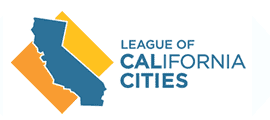 Several notable changes to public meetings are coming in 2023 thanks to new legislation that takes effect on Jan. 1 and the Governor’s announcement that the COVID-19 State of Emergency will end on Feb. 28. Ending the state of emergency will restrain how cities can conduct remote meetings by limiting their ability to utilize AB 361 (Rivas, Robert), which is effective during a declared state of emergency.
Several notable changes to public meetings are coming in 2023 thanks to new legislation that takes effect on Jan. 1 and the Governor’s announcement that the COVID-19 State of Emergency will end on Feb. 28. Ending the state of emergency will restrain how cities can conduct remote meetings by limiting their ability to utilize AB 361 (Rivas, Robert), which is effective during a declared state of emergency.
Cities will now be left with pre-pandemic teleconferencing laws and this year’s AB 2449 (Rubio, Blanca). These pre-pandemic laws include several outdated provisions, such as requiring members of a Ralph M. Brown Act body to make their teleconference location accessible to the public. Meanwhile, AB 2449 is limited in its scope and governed by onerous requirements.
Two other laws — AB 2647 (Levine) and SB 1100 (Cortese) — will also take effect on Jan. 1, which govern public meetings more generally.
New remote public meetings option
Asm. Rubio Blanca’s AB 2449 allows local agencies to hold remote public meetings without identifying each teleconference location and without making each location accessible to the public. This alternative option can only be used under limited circumstances and will expire on Jan. 1, 2026.
Crucially, this measure may be used if “just cause” is met or if “emergency circumstances” exist. Just cause is defined as any one of the following:
- Child care or caregiving of a child, parent, grandparent, grandchild, sibling, spouse, or domestic partner that requires a member to participate remotely.
- A contagious illness that prevents a member from attending in person.
- A need related to a physical or mental disability.
- Travel while on business of the legislative body or another state or local agency.
An emergency circumstance is a physical or family medical emergency that prevents a member of a legislative body from attending in person.
Under AB 2449, a member must notify the legislative body at the earliest possible opportunity — including at the start of a meeting — of their need to participate remotely and provide a general description of the circumstances related to one of the four items above. The member must make a request of the legislative body, which must approve the request.
A member may only use the just cause provisions up to two meetings per calendar year. A member may not participate in remote meetings under this law for more than three consecutive months or 20% of the agency’s regular meetings within a calendar year. If the legislative body regularly meets less than 10 times a year, a member may not participate remotely for more than two meetings.
The legislative body must request a general description of the circumstances relating to the member’s need to appear remotely. This description does not have to be more than 20 words and does not need to include any personal medical information.
The following rules also apply when meeting under just cause or emergency circumstances:
- Members participating remotely must do so through audio and visual technology.
- The legislative body must provide a way for the public to remotely hear, visually observe, and remotely address the legislative body.
- The legislative body must provide notice of how the public can access the meeting and offer comment.
- The agenda must identify and include an opportunity for the public to attend and directly address the legislative body through a call-in option, an internet-based service option, and in-person at the meeting.
- The legislative body cannot require comments to be submitted before the start of the meeting. The public must be allowed to make “real time” public comment.
- If there is a disruption to the meeting broadcast or in the ability to take call-in or internet-based public comment, no further action can be taken on agenda items until the issue is resolved.
- The legislative body must implement a procedure for receiving and resolving requests for reasonable accommodations for individuals with disabilities and must give notice of these procedures.
Additionally, members participating remotely must publicly disclose at the meeting whether anyone else 18 years or older is present with the member and the general nature of the member’s relationship with the individual.
Supplementary materials and public meetings
Under the Brown Act, any documents that are distributed to a majority of a legislative body less than 72 hours before a meeting must be distributed to the public at the same time. To meet this requirement, some local governments posted these materials online. However, the Third District Court of Appeals recently held that this does not meet Brown Act’s requirements.
As a result, local governments had to place copies of the document in a designated office open to the public. This meant that agencies had to keep offices open past normal business hours or withhold late-breaking information until the next business day. This increased costs or caused delays in decision-making, as materials often need multiple days for analysis.
The Cal Cities-sponsored AB 2647 (Levine) seeks to resolve the issues created by this decision. This measure clarifies that supplementary materials distributed less than 72 hours before a meeting can be posted online if physical copies are made available for public inspection at the beginning of the next regular business day at a public office. These documents can also be made available at a designated location if the documents are made physically available for at least 24 hours before that meeting.
Disruptive conduct and public meetings
The last few years have seen a rise in disruptive and threatening behavior in public meetings. Lawmakers responded by passing SB 1100 (Cortese), a new process that allows a presiding member of a legislative body conducting a meeting, or their designee, to remove someone for disrupting the meeting.
SB 1100 prescribes the following process for removal:
- Warn the individual that their behavior is disrupting the meeting and their failure to cease their behavior may result in removal.
- Remove the individual if they do not “promptly” cease their disruptive behavior.
The bill defines disruptive behavior as that which disrupts, disturbs, impedes, or renders infeasible the orderly conduct of the meeting. This includes, but is not limited to:
- A failure to comply with reasonable and lawful regulations adopted by a legislative body pursuant to Section 54954.3 or any other law.
- Engaging in behavior that constitutes the use of force or a true threat of force. “True threat of force” means a threat that a reasonable observer would perceive to be an actual threat to use force by the person making the threat.
However, existing statutory and case law already specifies other avenues for addressing public meeting disruptions. Under existing law — and as interpreted by the courts — a city council may adopt rules governing the conduct of their public meetings, including the removal of a person who makes slanderous, profane, or threatening remarks or other disorderly conduct that disrupts the meeting.
Additionally, legislative bodies can adopt reasonable regulations to ensure that people can address a legislative body on any item of interest to the public. However, the legislative body may not prohibit public criticism of its policies, procedures, programs, or services.
City officials and their attorneys may want to consider — should a situation call for it — whether they want to remove disruptive individuals pursuant to a rule adopted under existing statutory and case law or follow the new SB 1100 process.
Future Brown Act changes
Cal Cities will continue to push for sensible Brown Act modernization that balances local flexibility, transparency, and public accessibility, such as this year’s AB 1944 (Lee). Although the measure ultimately failed, it would have given local governments the flexibility needed to operate effectively in a world that is increasingly dependent on the internet while also increasing access to public meetings.
For questions or to provide comment regarding potential Brown Act legislation, please contact Legislative Affairs Lobbyist Johnnie Pina. For more Brown Act guidance please refer to the League of California Cities’ Open & Public V: A Guide to the Ralph M. Brown Act, Sierra Watch v. Placer County, Government Code section 36813 White v. City of Norwalk, Acosta v. City of Costa Mesa, Penal Code section 403, Government Code section 54957.9, Kindt v. Santa Monica Rent Control Board, and Government Code section 54954.3(b)(1).





